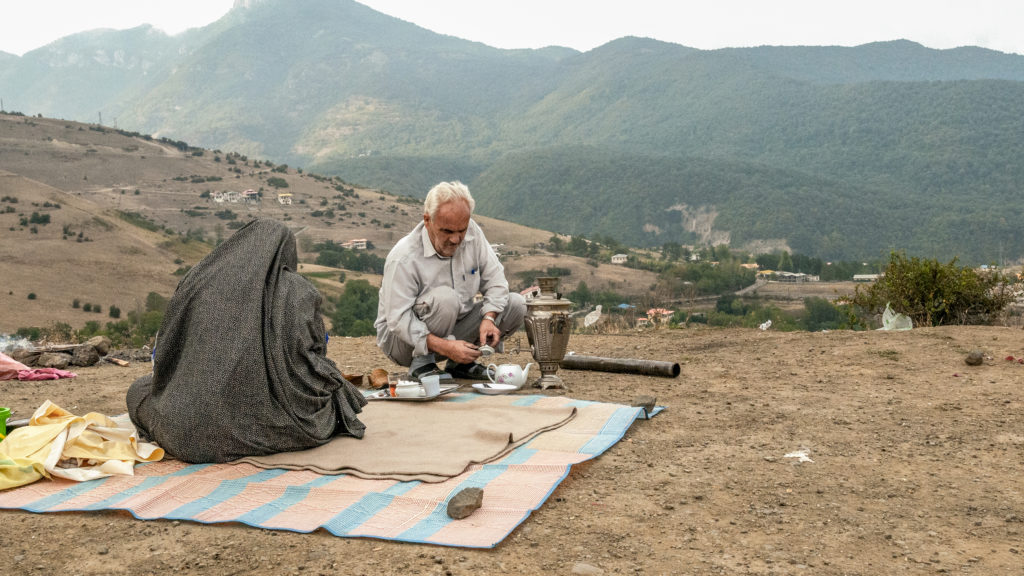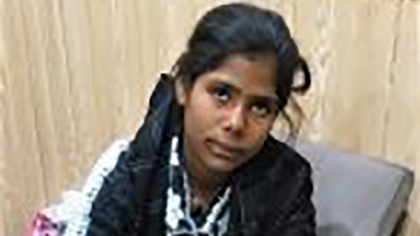No one notices the young Chinese woman silently crying in the back pew. It’s the only place she finds solace from her deep depression and fear of death.
She’s not even sure why she sits in this church every afternoon; her communist education and Buddhist religion teach against a belief in God. Yet something keeps drawing Lily Wang here.
She pulls a Bible from the pew. It’s not in her native Mandarin, but she flips it open anyway. She learned to read a little Thai after moving to Thailand a few years ago to teach school, but she didn’t learn enough to really understand this. So many questions cloud her mind that she finally musters enough courage to speak to a man carrying the same book. He brushes past the petite woman and goes about his business. The rejection reinforces everything she’s feeling — no one is interested in her; no one cares.
Distraught and angry, Wang walks to the foot of the cross and screams, “Are you real? I don’t want to die. I want to live. Please give me a way.” Wang storms out of the church, vowing never to return.
A few weeks later, Wang is sitting at her desk preparing lessons when a student rushes into her international school’s classroom.
“Teacher! Teacher!” the girl exclaims. Wang jumps up, startled and concerned, until she hears, “I found your book.” The student hands her a soiled booklet. She found it in the trashcan on the playground. Wang scrunches her nose against the stench and explains it isn’t hers. The girl must throw it back in the trash.
“But teacher, it must be your book,” the girl insists. “It’s written in Chinese.”
Wang quickly scans the first page. Her heart leaps. The story is about Jesus’ death and resurrection. She thanks her student for the book and sits down to read. The booklet, a tract called “Song of a Wanderer,” answers every question she whispered in the church. The information is shocking. Her education since childhood taught only evolution, but this booklet claims life started from a complete human form, not a single cell.
“This has to be true,” she mutters to herself. The book opens a new world for Wang as she discovers a Creator-God. She stuffs the booklet in her back pocket and takes it everywhere, spending every spare second reading and rereading.
For weeks, her whole world revolves around the torn book. Finally Wang decides she needs more. The booklet quotes Scripture throughout; she wants a Bible — but she has no idea how to find one. In her home country, China, you can’t just go out and buy one at the corner bookstore. Wang decides to write to the address on the tract requesting a Bible.
“No matter the cost, I will pay for the Bible,” she adds to the letter, fearing the Christians might reject her again. “I don’t really believe anything will happen,” she thinks, preparing herself for disappointment. “It will be just like when I prayed in the church — nothing. God isn’t interested.”
Wang can’t help herself though. She watches the mail daily but nothing arrives. Just as she’s about to give up hope, a woman speaking Mandarin calls. Southern Cross Project, a Chinese Bible distribution ministry, received her letter. The woman offers to deliver the Bible in person. Over coffee, Wang learns that as she was screaming at God months ago in the church, some American missions volunteers were distributing Mandarin Bibles and Christian literature packets to Chinese tourists. Somehow one of these books made it across town to her.
“I’m in God’s hands. He does care about me,” Wang admitted. “I need to accept these teachings.”
After her meeting, the teacher rushes home to call her mother in China.
She excitedly recounts her new discovery and urges her mother to tell her sister.
“How can I share if I do not understand it myself?” her mother asks. It hadn’t occurred to Wang that her uneducated mother might not understand the tract. It speaks to educated Chinese, those who learned about evolution and were taught to doubt God’s existence. Wang wants her family to find the same Creator-God, so she calls every day, reading from the tract and talking about God. By the end of the book, her mother and sister also decide to follow Jesus. The first time Wang visits a Chinese church in her city, she notices everyone gathered around two women. The discussion about God heats up but the two remain stone-faced, unbending in their denial of God’s existence.
Wang pulls the precious tract out of her purse and discreetly hands it to the women. They read parts of it together and discuss it with the young teacher. Both ask Jesus into their hearts. Wang takes the soiled booklet everywhere she goes. Even when she travels to England to work on a master’s degree, she slides it into her carry-on.
While in Europe, she uses the tract to lead more than 20 people to Christ during her two years of study — not to mention 20 others in Thailand. When Wang goes to China for vacation, her childhood best friend, Chen Wu, notices something different about her. Wang starts to tell Wu about the change in her life, but her friend stops her midsentence. Wu doesn’t want to hear; she thinks God is only for lucky people. Rather than argue, Wang comes up with a compromise.
“If you promise to read this book, I promise not to talk about God until you bring the topic to me,” Wang says, inwardly grimacing about leaving her precious, worn-out book in China. Her friend agrees, not really believing something that looks like a piece of trash really holds answers for her life. It’s months before Wu opens the book. But when she does, Wu reads the entire thing in one sitting, then immediately calls Wang. They kneel together — one in Thailand, the other in China — and Wang helps her best friend invite Jesus into her heart.
“Isn’t it amazing how God uses a piece of trash to call people to Him?” Wang asks her friend about the 70-cent tract. Then she adds, “Now give me my book back!”
Wu ignores her. She now uses the booklet to tell others in China how her life changed. She’s lost count of how many have prayed with her to receive Christ.
EDITOR’S NOTE — Names have been changed for security reasons. (BP)





Share with others: